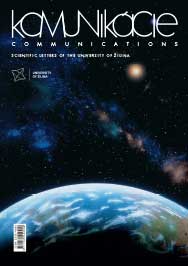The Epistemological Challenge of Kierkegaard's Truth is Subjectivity Principle
The Epistemological Challenge of Kierkegaard's Truth is Subjectivity Principle
Author(s): Michal Valčo, Katarina ValcovaSubject(s): Epistemology, Social Philosophy, Philosophy of Religion
Published by: Žilinská univerzita v Žilině
Keywords: Soren Kierkegaard; epistemology; truth; reason; subjectivity; science; faith;
Summary/Abstract: Kierkegaard rejects the modern concept of objective knowledge and focuses instead on subjectivity, defined as ‘inwardness’ and ‘passion’ in determining what might be called ‘relevant’ or ‘existential’ truth. Truth should thus be understood as an objective uncertainty appropriated passionately by the inward reflective experience of love and faith of the self. Such ‘Kierkegaardian’ primacy of epistemology implies that one must first discover the truth about morality and life, in order to try to live out that truth. The proud pursuit of objectivity without a recognition of human limitations, and the dimension of subjectivity in the process, has proved to be a dead end that emits the stench of manipulation, loss of human dignity, and finally nihilism. Understanding the limits of reason will help us avoid the pitfall of ‘scientism’.
Journal: Komunikácie - vedecké listy Žilinskej univerzity v Žiline
- Issue Year: 16/2014
- Issue No: 3
- Page Range: 25-28
- Page Count: 4
- Language: English

